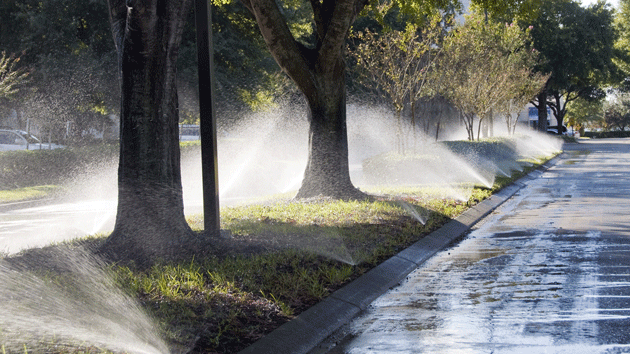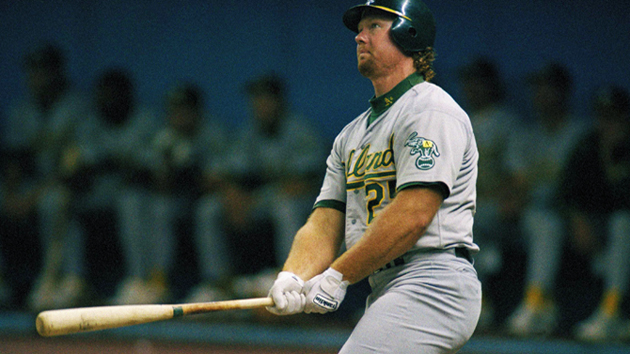This story was originally published by CityLab and is republished here as part of the Climate Desk collaboration.
Leave it to San Francisco to turn saving water into something mildly salacious: The city’s “Water Conservation is Smart and Sexy” campaign features voluptuous shots of shiny water features along with suggestive messages, such as “Replace Your Old Toilet and Get Paid for Doing It.“
The bus ads, billboards, and throatily narrated videos have been entertaining and educating SF residents since last year, but they recently picked up steam in the media. And last week, the SF Public Utilities Commission announced they’re throwing another $300,000 into extending the campaign, for more signs about full frontal washing machines and advice to nozzle your hose.
The cheeky campaign manages to be pretty funny—which, in the world of public utility advertising, is already saying a lot. The city probably received a positive response, given the cash it’s continuing to invest in the blitz. But whether or not it accomplishes its intended goal—presumably, to get people to use less water—it raises another question: Can sex sell behavior change? And if not, what can?
The Bay Area isn’t the only region in the West ramping up efforts to promote conservation through tried-and-true marketing tactics. If Exhibit A is San Francisco’s conservation porn, then Exhibit B is Los Angeles’ heart-string-tugging “Save the Drop” campaign. Launched by the mayor’s office in April, it features an adorable, sad-eyed cartoon water-drop. “Water isn’t angry about your 20-minute shower. Just disappointed,” reads one poster. The drop, also featured in a series of videos narrated by Steve Carrell, takes the opposite approach from San Francisco’s cheeky sex-positive ads: It’s all about the emotional appeal. Enter the violins:
If I hadn’t felt awful about letting the sink run while brushing my teeth before—well, I sure do now. But will li’l droopy-eyes still be on my mind the next time I lay into my molars? Eh, I might forget.
Denver, Colorado, has taken a decidedly different tack with their conservation campaigning. Perhaps taking a hint from the schadenfreude-fueled hashtaggery known as #droughtshaming, Denver officials simply want to make you feel bad. The 2014 “Use What You Need” campaign reminds citizens not to be “that guy”—you know, the Pomeranian-owning dude who waters his lawn outside the assigned hours, or that couple who lets their sprinklers run in the rain.
I don’t know—it’s not quite working for me. That guy would never lay down in that soaking grass in his tennis whites.
The fashion direction on this campaign was just…off. And given decades of child-psychology research, I’m not sure that shame is the most effective means of correcting someone’s habits.
Finally, what about good ol’ civic or state pride? If there’s anywhere that has a chance of stirring behavioral change in residents, it would probably be Texas. Though the Texas Water Conservation Association never used them, Austin-based designer Amanda Pasquali’s “Conserve Texas” graphics make a striking appeal for water thriftiness. (While the state was recently hit by devastating floods, it suffered many prior years of drought.) A dry, dusty Lone Star appears to be evaporating from its flag. Saving water isn’t just about people—it’s about saving the land you love. I can get behind that.
I reached out to Wesley Schultz, a professor of psychology at California State University San Marcos, where he researches social influences and behavioral change—often in the context of resource conservation. Turns out, none of these campaigns are particularly likely to affect real shifts in habit.
“Mass media campaigns, by and large, are ineffective at changing behavior,” he says. “The research is really consistent in showing that what you’ll get is raised awareness—and that’s about it.”
Much more effective are more active strategies that encourage people to make changes to their living situations, like rebates for replacing grass lawns or old, wasteful fixtures. “That’s where you’re going to see long-term, lasting change,” says Schultz, “rather than a short-term, immediate response you get from a billboard.”
Still, there are best practices when it comes to communicating an environmental issue and the need for individuals to change. Schultz says that all too often, the message that environmental groups and government agencies send is that most people are doing the wrong thing—and that you, the reader of the ad, should be different.
“But that’s not a strong message, because that’s scary,” he says. “I don’t want to be the deviant one. Collective actions are much stronger. It’s powerful to think, ‘Oh, most people care about saving water, most people are saving water.'”
So which of the campaigns did Schultz like? None of them. But he did mention a fifth approach, taken by the City of San Diego: “San Diegans Waste No Water.” Rather than point fingers at individuals or a flag, it asserts that the people of a community all make the same, conservation-positive choice.
“Of all the messaging platforms, it’s a really strong one,” he says. “It says that managing the drought is really is going to require a collective action. One person’s behavior doesn’t make a big difference, but with lots of people, it will.”












